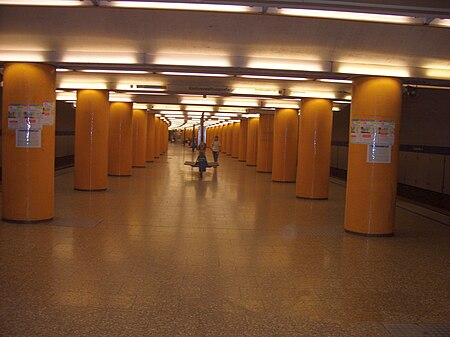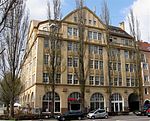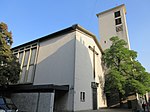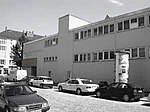Poccistraße station
1978 establishments in West GermanyBuildings and structures completed in 1978Munich U-Bahn stationsRailway stations in Germany opened in 1978Railway stations located underground in Germany

Poccistraße is an U-Bahn station in Munich on the U3 and U6. It was named after Count Franz Pocci.
Excerpt from the Wikipedia article Poccistraße station (License: CC BY-SA 3.0, Authors, Images).Poccistraße station
Lindwurmstraße, Munich Am Schlachthof (Ludwigsvorstadt-Isarvorstadt)
Geographical coordinates (GPS) Address Nearby Places Show on map
Geographical coordinates (GPS)
| Latitude | Longitude |
|---|---|
| N 48.125555555556 ° | E 11.550277777778 ° |
Address
Poccistraße
Lindwurmstraße
80337 Munich, Am Schlachthof (Ludwigsvorstadt-Isarvorstadt)
Bavaria, Germany
Open on Google Maps










